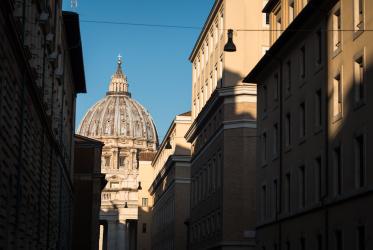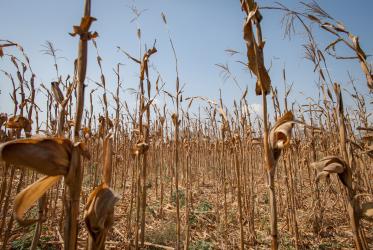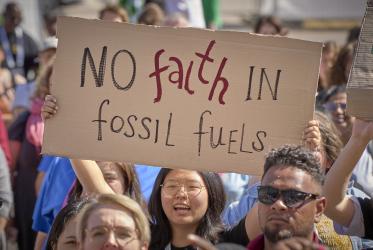Joint Working Group between the RCC and the WCC
Plenary Meeting
13-17 September 2016
Ecumenical Institute Bossey, Switzerland
Communiqué
With its 2016 plenary meeting, the Joint Working Group between the World Council of Churches and the Roman Catholic Church (JWG) returned to the Ecumenical Institute at the Château de Bossey near Geneva, where the first meeting of the group was held in 1965. The JWG was formed to monitor and foster cooperation between the Roman Catholic Church and the World Council of Churches in response to the changing contexts the churches are facing. Cooperation for the search for the visible unity of the church, mission, justice and peace, ecumenical formation, and inter-religious dialogue are standing agenda items of the JWG. The group is chaired by the two co-moderators Metropolitan Nifon of Targoviste and the Archbishop of Dublin and Primate of Ireland, Diarmuid Martin.
Bossey was a conducive and stimulating environment for reflection and discussions of the group at a time when the students were arriving for the courses in the autumn and winter semester. Following the first plenary held last year in Rome, which was an opportunity for the group to familiarize itself with the different dicasteries of the Vatican, a primary objective of this meeting was to introduce the work of the WCC as a worldwide fellowship of churches with its secretariat in Geneva.
The WCC General Secretary, Rev. Dr Olav Fykse Tveit, sees in the growing relationships between the Roman Catholic Church and the fellowship of churches of the WCC a sign of hope. In response to questions, he underlined the importance of accompaniment and mutual accountability among the churches on their pilgrimage of justice and peace as an expression of the ecumenical movement: “The pilgrimage of justice and peace is a movement of hope that brings us to places where we can encounter each other on our journey and look for common understanding as human persons, as Christians, as churches.”
The shared analysis of recent developments among the churches and the ecumenical movement, including the WCC’s pilgrimage of justice and peace and careful study of important texts—such as Pope Francis’ apostolic exhortations Evangelii Gaudium and Amoris Laetita, his papal encyclical Laudato ‘Si and the WCC mission statement Together towards life and other work of the WCC on justice and peace—showed a remarkable resonance between these papal texts and the underlying insights and convictions guiding the work of the WCC.
Dialogue and cooperation regarding challenges the churches are facing together are increasing and showing fruits. The JWG is witnessing growing cooperation between the Pontifical Councils for Promoting Christian Unity, the Pastoral Care for Migrant and Itinerant Peoples, for Interreligious Dialogue and for Justice and Peace with the relevant projects in the WCC. The present composition of the JWG members reflects this reality and the willingness of the JWG to accompany such cooperation and to deepen it even further.
The role of religion, culture and dialogue in peace building and the ecumenical challenge and opportunity posed by migrants and refugees are two contemporary realities that the JWG set out to explore during the coming two years. The two groups will include members of the JWG, staff of the relevant offices of the Vatican and the WCC, and experts on the issues concerned. The results achieved will be evaluated at the next plenary meeting, which is scheduled for September 2017 in a pre-dominantly Catholic country.



